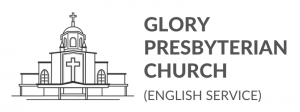- HOME
- LATEST
- ABOUT GPC
- NEW HERE?
-
MINISTRIES
- Ministry Awareness: Opportunities to Serve
- Care Group
- Church Wide Bible Study (CWBS)
- Family Ministry
- Filipina Fellowship
- Indonesian Fellowship
- Mission Ministry
- Music Ministry
- Outreach Ministry
- Precept Bible Study Ministry
- School Ministry
- Senior Adults Fellowship (SAFE)
- Sunday School
- Women Ministry
- Youth and Young Adults Ministry
- RESOURCES
- CONTACT US
- GIVE
- 中文部
By Rev Henry Hong
Jonathan Edwards, a renowned American preacher and theologian of the 18th century, was deeply influenced by Puritan theology and wrote extensively on topics related to Communion and the spiritual life. Here are some lessons that can be learned from Jonathan Edwards' writings on the Lord's Supper:
1. The Affections: Edwards believed that the Lord's Supper should engage the affections or emotions of believers in a sincere and profound way. He emphasized that the act of partaking should not be a mere ritual but a heartfelt expression of love, gratitude, and devotion to Christ. Edwards often referred to passages like:
§ Matthew 26:26-28: Here, Jesus institutes the Lord's Supper, emphasizing the symbolism of His body and blood, which should evoke deep affection and gratitude in believers.
§ Luke 22:19-20: Edwards would have pointed to these verses, where Jesus instructs His disciples to "do this in remembrance of me." This serves as a call to engage the affections and memory in Communion.
2. Application to Daily Life: Edwards believed that the lessons and experiences gained from the Lord's Supper should extend beyond the church service into the daily lives of believers. He encouraged them to live out the truths and commitments made during Communion. Relevant passages would include:
§ 1 Corinthians 11:26: This verse emphasizes the proclamation of Christ's death until He comes again. Edwards would have urged believers to carry this proclamation into their daily interactions and witness.
§ Galatians 2:20: Edwards might have drawn from this verse to emphasize the idea of daily living "by faith in the Son of God" who loved them and gave Himself for them.
§ Colossians 3:1-4: These verses speak of setting one's mind on things above and putting on the new self. Edwards likely would have encouraged believers to live in a manner consistent with their identity in Christ.
3. Joy and Thankfulness: Edwards believed that the Lord's Supper should be a time of joy and thanksgiving, as believers remembered the redemptive work of Christ. He often referenced passages that emphasized joy and gratitude:
§ 1 Corinthians 10:16: Edwards would have highlighted the sense of participation in the body and blood of Christ, fostering a sense of joy in believers.
§ 1 Thessalonians 5:16-18: These verses encourage believers to "rejoice always" and "give thanks in all circumstances." Edwards likely saw the Lord's Supper as a prime occasion for such rejoicing and thanksgiving.
§ Psalm 34:8: Edwards might have quoted this verse to emphasize the idea of tasting and seeing that the Lord is good, which is often experienced in a profound way during Communion.
In summary, Jonathan Edwards believed that the Lord's Supper should engage the affections of believers, be applied to their daily lives as a living testimony of Christ's work, and be a source of great joy and thanksgiving. He drew upon various biblical passages to support these ideas, emphasizing the profound significance of Communion in the life of a Christian.
*For those who wish to explore further, Jonathan Edwards' ideas on the Lord's Supper can primarily be found in the following resources:
1. "A Treatise Concerning Religious Affections" (1746): While not solely focused on the Lord's Supper, this treatise delves into the nature of religious affections, which were integral to Edwards' understanding of Communion and its impact on the believer's heart and emotions.
2. "The Lord's Supper" (Sermon Series): Edwards delivered a series of sermons on the Lord's Supper, and you can find his teachings on this topic scattered throughout these sermons. Some of these sermons include:
· "The Duty of Self-Examination"
· "The Importance of a Right Understanding in Matters of Religion"
· "A Desire to Depart and Be with Christ"
· "Heavenly Happiness"
3. "The Narrative of Surprising Conversions" (1736): Edwards' famous account of the Great Awakening includes descriptions of the impact of revival on individuals and communities. While not focused solely on the Lord's Supper, it provides insights into how spiritual experiences, including Communion, were integrated into the lives of the revivalists.
4. "The Works of Jonathan Edwards" (Complete Works): Edwards' collected works contain numerous sermons, treatises, and writings that touch upon the Lord's Supper and related spiritual topics. You can explore various volumes within this collection for his insights on Communion.
RECENT POSTS
